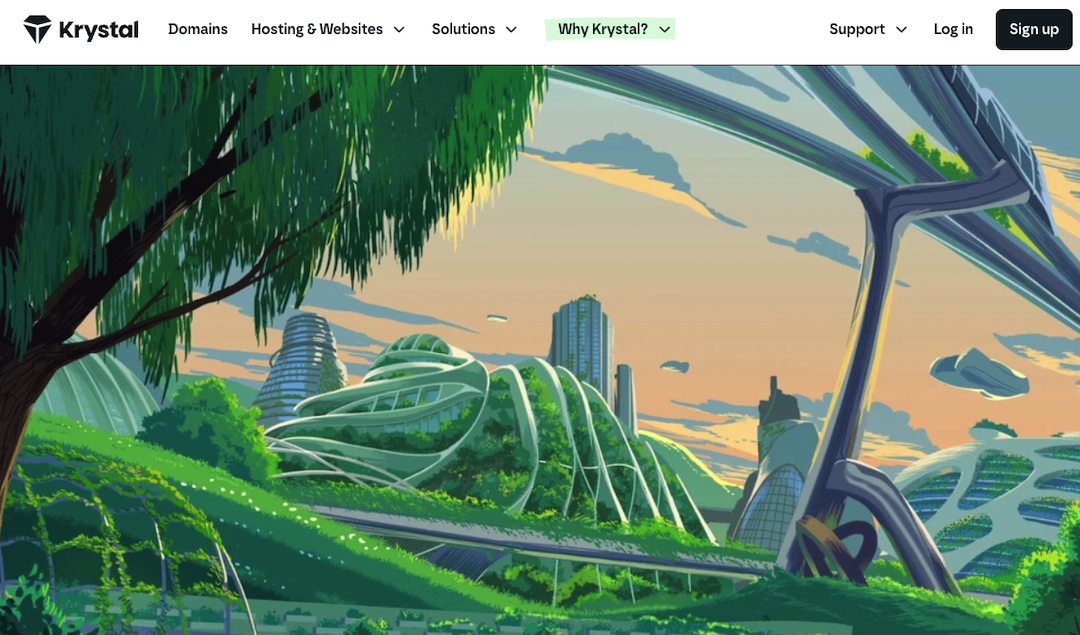
Are you worried about your environmental footprint and looking for ways to make your online presence more eco-friendly? You're not alone. As the digital world continues to expand, the demand for sustainable practices in every sector, including web hosting, is becoming more pressing. Imagine running your website while also contributing to a greener planet—sounds like a win-win, right?
In this article, we’ll explore how sustainable web hosting works and how you can benefit from choosing green web hosting providers. You’ll learn practical steps to reduce your digital carbon footprint and discover why more businesses are turning to eco-friendly web hosting solutions. By the end, you’ll not only feel good about your environmental impact but also understand how it can enhance your brand reputation and potentially save costs.
Understanding Sustainable Web Hosting
What is Sustainable Web Hosting?
Sustainable web hosting, also known as green web hosting, refers to web hosting services designed to minimize environmental impact. These services typically use renewable energy sources like wind, solar, and hydroelectric power to run their data centers. Sustainable web hosting also involves implementing energy-efficient practices such as virtualization, server consolidation, and cooling optimization.
Why is Sustainable Web Hosting Important?
The importance of sustainable web hosting cannot be overstated. The internet's carbon footprint is staggering, with data centers worldwide consuming enormous amounts of energy. By choosing sustainable, green web hosting providers, you contribute to reducing carbon emissions and conserving natural resources. This move is essential for combating climate change and promoting a healthier planet.
Key Strategies for Sustainable Web Hosting
1. Use of Renewable Energy
- Many sustainable web hosting providers use renewable energy sources directly. For instance, Hostinger utilizes renewable energy at several of its data centers, reducing its reliance on fossil fuels.
- Some providers purchase renewable energy credits (RECs) or carbon offset credits to compensate for their energy use. While this method is somewhat controversial, it helps reduce the overall carbon footprint.
2. Energy Efficiency Practices
- Virtualization and server consolidation are key strategies. By hosting multiple virtual servers on a single physical server, energy consumption is significantly reduced.
- Cooling optimization techniques, such as advanced cooling systems and efficient data center designs, also play a crucial role in lowering energy use.
3. Power Usage Effectiveness (PUE)
- PUE is a metric that measures the energy efficiency of data centers. A lower PUE indicates higher efficiency. Leading sustainable web hosting providers, like Krystal Hosting, strive for low PUE scores by continuously improving their energy management practices.
By understanding these key strategies, you can see how sustainable web hosting providers are making significant strides in reducing their environmental impact. But why should you, as a business or individual, make the switch?
Stay tuned as we delve deeper into the benefits of sustainable web hosting, from cost savings to enhanced brand reputation, in the next section of this article. By choosing green web hosting, you not only help the planet but also position yourself as a forward-thinking, environmentally responsible entity. Let's explore how this choice can transform your online presence and contribute to a sustainable future.
Benefits of Sustainable Web Hosting
Environmental Impact
The most significant advantage of sustainable web hosting is its positive environmental impact. Traditional data centers consume vast amounts of energy and produce considerable carbon emissions. By contrast, green web hosting providers utilize renewable energy and energy-efficient technologies to minimize their carbon footprint.
This switch significantly reduces greenhouse gas emissions and helps combat climate change. By choosing a green web hosting provider, you can contribute to a healthier planet and demonstrate your commitment to sustainability.
Cost-Effectiveness
Many people assume that sustainable solutions come with a hefty price tag, but this isn't always the case with green web hosting. Renewable energy sources often lead to lower operational costs for providers, which can translate into savings for you. Additionally, some green web hosting providers offer incentives such as free carbon offsets or participation in tree planting programs.
These cost-effective measures mean you can support the environment without breaking the bank.
Brand Reputation
In today’s market, consumers are increasingly concerned about the environmental practices of the companies they support. According to recent studies, a significant majority of customers are more likely to engage with brands that prioritize sustainability. By opting for green web hosting, you can enhance your brand's reputation and appeal to eco-conscious consumers. This decision not only boosts your image but can also lead to increased customer loyalty and trust.
Performance and Reliability
Sustainable web hosting providers often prioritize using the latest, most energy-efficient hardware and software. This focus on efficiency can lead to improved website performance, with faster load times and fewer downtimes.
Many green web hosting providers, such as GreenGeeks, offer impressive uptime guarantees, ensuring that your site remains accessible to users. Additionally, Google rewards fast-loading websites with higher search engine rankings, which can increase your site's visibility and traffic.
Challenges and Controversies
Renewable Energy Credits (RECs)
While RECs are a step in the right direction, they have been met with some criticism. RECs allow companies to offset their carbon footprint by investing in renewable energy projects.
However, critics argue that this approach doesn't necessarily lead to direct reductions in carbon emissions and can sometimes mask the true environmental impact. It’s crucial to choose providers that use renewable energy directly rather than relying solely on credits.
Adoption Barriers
Despite the clear benefits, not all web hosting companies have embraced sustainable practices. Transitioning to green energy requires significant investment in infrastructure, which can be a barrier for many providers. Additionally, some of the largest hosting companies, with substantial carbon footprints, have been slow to adopt these changes. However, as demand for sustainable solutions grows, more companies are likely to follow suit.
Case Studies and Examples
Hostinger

Hostinger has made significant strides in sustainability by using renewable energy in several of its data centers. This commitment helps reduce their reliance on non-renewable energy sources and lowers their overall carbon footprint.
Krystal Hosting

Krystal Hosting stands out as a leader in sustainable web hosting. All of their data centers run on 100% renewable energy, sourced from the sun, wind, and sea. Krystal also boasts impressive Power Usage Effectiveness (PUE) scores, with their flagship data center achieving a PUE of 1.05, making it one of the most efficient in the world. Additionally, Krystal’s dedication to environmental initiatives, such as tree planting, further demonstrates their commitment to sustainability.
Other Notable Providers
Several other providers are also making waves in the sustainable web hosting space. Companies like GreenGeeks and A2 Hosting have integrated green practices into their operations, offering customers reliable, eco-friendly hosting solutions.
Future Trends and Predictions
Increasing Demand for Green Hosting
As awareness of environmental issues grows, so does the demand for sustainable web hosting. Businesses and individuals are increasingly seeking out green hosting solutions to reduce their carbon footprint and align with their values.
This trend is likely to continue, driving more innovation and adoption in the industry.
Technological Advancements
Emerging technologies promise to further reduce the environmental impact of web hosting. Innovations in data center cooling, energy storage, and server efficiency are continually being developed. These advancements will make sustainable hosting even more accessible and effective.
Corporate Social Responsibility (CSR)
More companies are recognizing the importance of CSR and integrating sustainable practices into their operations. Web hosting providers that prioritize sustainability are not only meeting consumer demand but also setting an example for other industries. This shift towards corporate responsibility is essential for achieving broader environmental goals.
Conclusion
Sustainable web hosting offers a practical and impactful way to reduce your digital carbon footprint. By choosing green web hosting providers, you can enjoy numerous benefits, from cost savings and enhanced performance to improved brand reputation. Despite some challenges, the trend toward sustainability in web hosting is growing, driven by technological advancements and increasing consumer demand.
Now is the perfect time to consider switching to a sustainable web hosting provider. Not only will you be contributing to a healthier planet, but you'll also be positioning yourself as a forward-thinking, environmentally responsible entity. Together, we can make a difference—one website at a time.
Share this post
Leave a comment
All comments are moderated. Spammy and bot submitted comments are deleted. Please submit the comments that are helpful to others, and we'll approve your comments. A comment that includes outbound link will only be approved if the content is relevant to the topic, and has some value to our readers.



Comments (0)
No comment